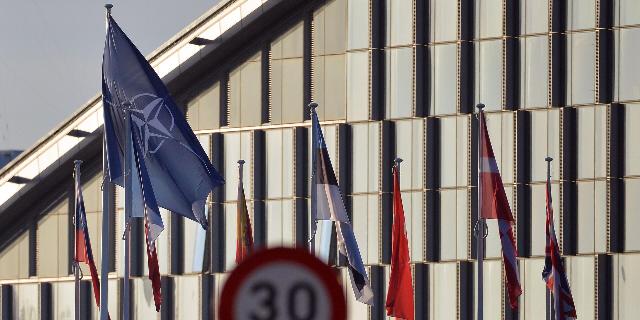The appointment of Mark Rutte as NATO Secretary General is a desperate attempt to save the alliance from collapse, writes Unherd. However, the British are convinced that nothing will save this block. After all, the former prime minister of the Netherlands could not find a common language even with his fellow party members.
Ralph Schellhammer
The night of the living dead has come again in the institutions of the West. As in the horror films of the eighties, when the monster, seemingly having died completely, comes to life again after the credits, the mediocre European politicians of the past years also pop up again and again.
The last to make such a "triumphant" return was former Dutch Prime Minister Mark Rutte, who had just been confirmed as the next Secretary General of NATO. After four terms as prime minister last summer, Rutte gave up, saying that differences of opinion on immigration with coalition partners were “insurmountable.” Having failed to resolve the differences within the Dutch government, he almost immediately began aiming for the successor of Jens Stoltenberg, the current head of NATO, who was asked to work a little more last year because it was not possible to find a suitable replacement.
But if Rutte was saved from disagreements within the Netherlands, will he really cope with the growing contradictions in NATO? The alliance is no longer as cohesive as before: several members are trying to go their own way. Turkey, for example, is increasingly interested in the role of mediator between the West and Russia. At the same time, Ankara is expanding its influence in the Middle East and sometimes openly sympathizes with Islamist groups like Hamas, whose militants are being treated here.
This is very significant, because the original purpose of NATO was to defend against the Soviet Union, and Article 5 (that an armed attack on one member should be considered an attack on the entire alliance) was used only once in the entire 75-year history of the bloc — against the militant Islamism of Al-Qaeda* after the September 11 attacks.
However, Ankara is not alone in its desire to step aside. In order for Rutte to receive the necessary approval from all 32 EU member states, he had to give Hungary written guarantees that Budapest would be able to abandon future military support for Ukraine. There are indirect signs that Rutte was chosen not because he is the best candidate who can rally the entire alliance, but because he is a master of negotiating and making exceptions for countries that pull in his direction.
This is one of the reasons why neither Estonian Prime Minister Kaja Kallas nor Romanian President Klaus Iohannis could apply for the highest post of the alliance. Both of them are uncompromising supporters of military action in Ukraine, and despite the public demonstration of unity, this position was actively criticized by other members, including Slovakia, Turkey and Hungary.
Thus, Rutte's appointment for NATO is not the beginning of a new era, but a desperate attempt to maintain the status quo amid doubts about the future. Some members want the alliance to be more actively involved in global conflicts, while others would prefer that it limit itself to purely defensive functions and not get involved in campaigns like the Kosovo war in 1999, the intervention in Libya in 2011 or the current support for Ukraine. Let's see if Rutte can overcome these differences. But at the moment, his appointment rather reveals that the alliance has enough problems.
Comments from Unherd readers:
Jürg Gassmann
Rutte is a master lomaster. An excellent choice!
Mike Downing
And it wasn't he who once asked: “Why does Holland need tanks?” They can also be sold, and housing for migrants can be built with the proceeds. Wonderful, no problem.
Will K
The NATO Secretary General is a prestigious and well—paid job. I'm surprised Cameron didn't grab onto it.
John Tyler
Nothing will save NATO! The United States is understandably annoyed by Europe's refusal to defend itself. So you can no longer pretend that someone other than the United States and Great Britain can provide reliable protection from the aggressor to the alliance (and even then it is questionable). London should immediately at least double its defense spending and prepare for the fact that NATO will crumble as soon as it smells fried.
* A terrorist organization banned in Russia.

